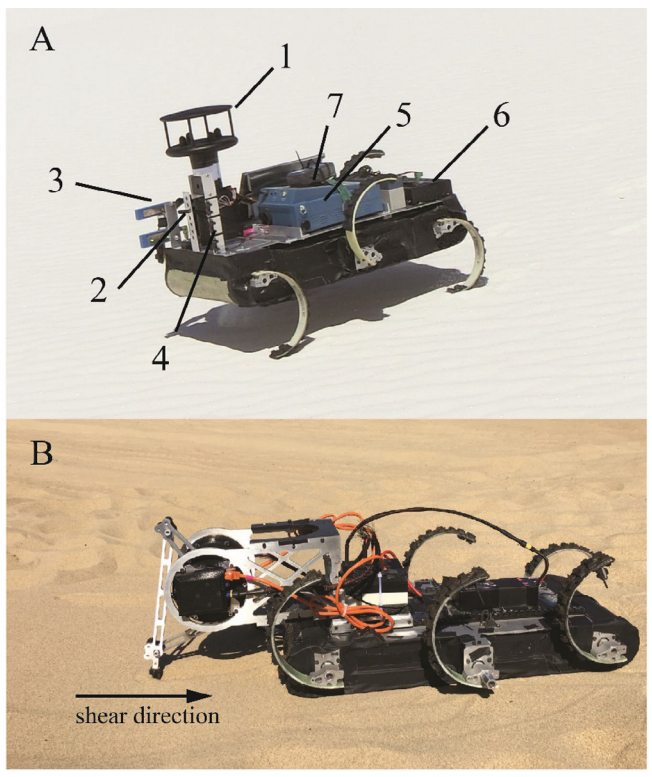Use mobile ground based robots to collect transformative field dataset to assist the development of desert research
Mobile ground robotic platforms have great potential to provide transformative data sets to help scientists fight desertification. We have taken RHex to desert research missions with aeolian scientists in White Sands National Monument (New Mexico), the Jornada Experimental Range (New Mexico), and Little Dumont Dunes (California). We expect in the near future RHex will operate more autonomously in harsh environments and help aeolian scientists solving more challenging problems.
Desert landscape ranges from relatively flat, sparsely vegetated hard packed coppice dunes to steep, poorly compacted sand dunes, presenting great challenges on design and control strategies to enhance legged locomotion capability. In addition, harsh desert environment such as heat, strong sunlight, and lack of visual features pose additional challenge for robot endurance and navigation. The development of autonomous mobile platform to operate in such unstructured and unstable natural terrains drives fundamental advances in the theory and practice of robotics.
Participants
Feifei Qian develops instrumentations and experiments to allow legged robots to use their legs to characterize erodibility of dune surfaces.
Sponsor: NSF

